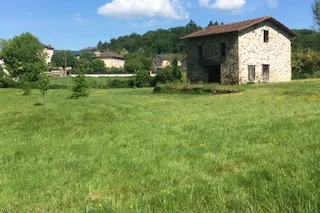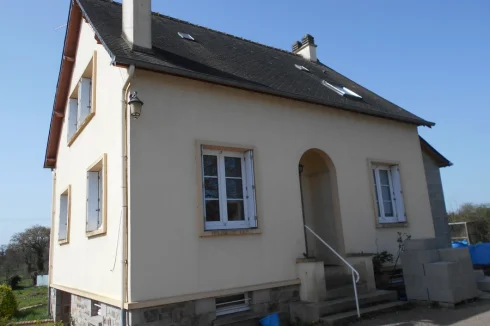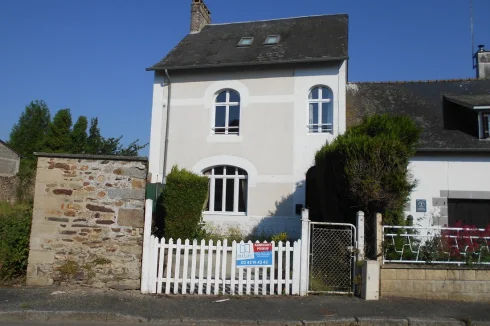Covid-19 - Return to School in France
Tuesday 05 May 2020
French children are to return to school from 12th May, against the advice of government scientists, so how will it be done?
According to Jean-Michel Blanquer, the Minister of Education, in an announcement later refrained by the Prime Minister Edouard Philippe, the return will be implemented on a phased basis over a three-week period, with pupils attending in small groups of 15 per class.
The decision goes against the recommendation of the government Covid-19 scientific group, who recommended that schools should remain closed until September, stating: "Schools and universities are places at significant risk of contamination [...] Consequently, the Scientific Council proposes to keep nurseries, schools, colleges, high schools and universities closed until September."
Timetable
During the week commencing 12th May nursery and primary school pupils will start their return to school. Teachers will return on 11th May.
However, this date will not apply to all primary schools, as priority will be given to the return of pupils in educationally disadvantaged areas, as well as children in rural areas with class sizes of no more than 15 pupils.
Priority will also be given to working couples who cannot telework and single-parent families. Children of caregivers and teachers will also be given priority.
From 18th May, collège (lower secondary school) pupils will return, starting with 11-12 year-old children.
Although those attending lycée (upper secondary school) were due to follow, the Minister later stated that they would not be returning until June, at the earliest. There will be no school examinations this year, with grades awarded by continuous assessment.
From week commencing 25th May all primary and lower secondary school classes will resume, with groups of 15 pupils at most, but only where the classroom had a surface area of at least 50m2. Pupils in the same class may be separated, with some attending school in the morning and the remainder in the afternoon. As a result, schooling may only be part-time for many children, although it was possible that such classes could be supplemented by distance learning.
Special provisions will be put in place for creches, for whom safety distance gestures are more difficult to enforce. There will be a maximum of 10 children per class.
University and other higher education establishments will remain closed until September 2020.
Families will not be obliged to send their children to school, although "no child would be permitted to stay away from school entirely". In such cases their children would be obliged to attend distance learning classes.
With classes kept to a maximum of 15 pupils, some children will be taught remotely from home, by teachers who may also be teaching from home. Teacher unions have expressed concern about using teachers as 'cannon fodder' in the pandemic, so the government have stated that teachers who may consider themselves to be in a vulnerable group can teach from home.
'Protocole Sanitaire'
With deep concern being expressed by teachers and parents (and some local mayors) about safety conditions in schools, the Minister stated that all areas of the school (including transport) would need to have a "protocole sanitaire" in place. "When the sanitary protocol will not allow a return, the school will not reopen. When there is no soap, no gel, we do not open." Similarly, in some areas where strong measures of containment continued to apply, the schools would not open.
The government subsequently issued a 67-page advice note on the measures of protection that would need to apply. Under the guidance, parents should take the temperature of their child(ren) before sending them to school and only send them to school if it was normal.
Lower secondary school pupils will be required to wear masks where physical distancing measures cannot be adopted, including on school transport. Intially the government had proposed they would be mandatory for all secondary school children, so it remains to be seen how this will play out at a local lelve. Masks are being made available to the general population as part of a plan to lift the lockdown.
Pupils will also be obliged to wash their hands on arrival at school, before going to class, after break, before and after each meal, before and after going to the toilet, and "after blowing their nose, coughing, sneezing," etc.
Where possible, arrival times of pupils at school should be staggered. The same should apply to play and lunch breaks, and ball games and contact games are banned. Physical distancing measures should be observed at all times, including in corridors.
As far as possible, pupils will be confined to a single classroom and children should be kept at least one metre apart. Where at all possible, school meals should be taken in the classroom.
All spaces in the school will be regularly disinfected, some spaces several times a day, and other spaces less regularly used at least once a day.
Library books taken out or used should subsequently be left untouched for five days. Teachers are asked to make use of audio resources whenever possible, instead of textbooks.
Mission Impossible?
With the government facing widespread criticism that they are opening schools too early, and that the measures of protection proposed by the are unrealistic, Jean-Michel Blanquer repeated concerns expressed by President Emmanuel Macron in an address to the nation last week, stating: "Each month of school lost is a huge social problem, therefore it is very desirable to have this gradual return to school."
The Minister also expressed concerned that leaving the return to school any later would mean it would be too close to the start of the holiday season. The school term will finish on 4th July.
However, the main teachers' union, the FSU, has stated that: "The volunteerism left to parents is illusory. It reveals and amplifies social and educational inequalities."
Other teacher unions and parents' associations have also expressed concern that the proposals are impractical. For the teachers' union Unsa, "the resumption of school presented by the Prime Minister is unacceptable and impossible."
Many local mayors have also protested that they will not have enough time organise the measures that will be necessary, and the association of mayors in the Ile-de-France have formally demanded that the return to school is delayed, calling the plan "déconfinement à marche forcée." Some mayors have stated they will not be ready for 11th May and that, in consequence, opening of their schools would be delayed.
Polls carried out of parents suggest that only around half of them will be sending their child(ren) to school.
Thank you for showing an interest in our News section.
Our News section is no longer being published although our catalogue of articles remains in place.
If you found our News useful, please have a look at France Insider, our subscription based News service with in-depth analysis, or our authoritative Guides to France.
If you require advice and assistance with the purchase of French property and moving to France, then take a look at the France Insider Property Clinic.





